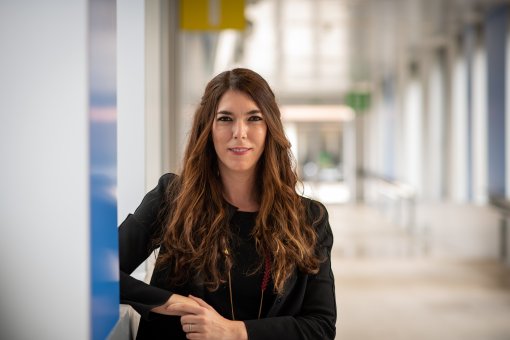Images
Contact

One of the main problems in oncology is the lack of specificity of current treatments and the emergence of resistance.
Experts from all over the world meet up in Barcelona to discuss new strategies in the fight against cancer. These strategies may be crucial in turning cancer into a chronic disease.
On 19, 20 and 21 September the Institut d’Estudis Catalans (IEC) is to host the Barcelona Biomed Conference entitled “Signal rewiring and addiction in cancer”, in which scientists from all over the world will come together to discuss the latest breakthroughs in the molecular biology of cancer, a field that is devoted to genetic and molecular aspects of tumor cells. Together with early diagnosis methods and more efficient prevention campaigns, this field of biology is contributing to a decrease in cancer incidence and mortality. “In the conference we will address the most recent advances in molecular oncology and how to ensure that this information is transferred to clinical practice in order to benefit the patient”, explains Ángel R. Nebreda, ICREA Professor at IRB Barcelona, BBVA Foundation Cancer Research Professor, and co-organizer of the conference together with Tony Hunter, Oncology Professor and director of the Cancer Center of the Salk Institute in the US.
More specific and efficient innovative treatments to combat cancer
In the human body, cells receive nutrients, associate with other cells in their surrounding environment and perform all the functions that allow their growth and survival. Cells naturally accumulate DNA mutations, which on occasions affect their behavior and trigger their uncontrolled multiplication and the development of tumors. The mutations that initiate tumors can be inherited or induced by environmental factors, such as tobacco.
But how do cancer cells survive in a hostile environment such as the human body? Tumor cells follow their own set of rules, disobeying the signals that they receive from the milieu and evading death. “In the last ten years we have seen that these cells not only depend on the initiating mutations to survive but during tumor development the mechanisms they use to pick up and interpret signals are altered. These modifications improve the capacity of tumor cells to adapt to their surrounding environment, evade the body’s natural defense systems and even become resilient to the treatments used to kill them, namely chemotherapy and radiotherapy”, explains Nebreda.
The 18 speakers invited to present their latest work in Barcelona study how cancer cells use certain regulatory components of cell signalling machinery to survive, spread, and evade the body’s control mechanisms. This information will be decisive to make headway into personalized treatments. Through a genetic and biochemical study of the tumors of individual patients, clinicians will be able to design personalized therapies in function of their needs and with fewer side effects than conventional approaches, thereby avoiding resistance to anti-tumor treatments and turning cancer into a chronic disease. “Our challenge is to draw up a catalogue of molecular alterations of each tumor, in such a way as to allow us to translate all this information to clinical practice and to combat the disease”.
Gordon Mills, from the MD Anderson Center in Houston, US, figures among the invited speakers. Mills is an international expert in breast and ovary cancer and his contributions have made a significant impact on therapy.
María S. Soengas, from the Centro Nacional de Investigaciones Oncológicas (CNIO) in Madrid. Soengas focuses her efforts on the transfer of basic research on melanomas to the clinical setting for the development of new treatments.
Neal Rosen, from the Memorial Sloan-Kettering Cancer Center in New York, US. For several years Rosen has been devoted to the search for new drugs that inhibit the growth and spread of cancer cells through the body, and his contributions have been crucial for the characterization of the mechanisms that tumor cells use to resist therapeutic treatments.
About the Barcelona Biomed Conference Series
Barcelona BioMed Conferences provide a platform where leading researchers can meet to present and discuss breakthroughs in several fields of the biomedical sciences. The conferences aim to provide a highly-focused think-tank atmosphere for a select group of participants, these chosen on the basis of their scientific record
The series was started in 2006 and involves three conferences a year. These are organized by researchers at IRB Barcelona in collaboration with scientists from prestigious institutes around the world and with the support of the BBVA Foundation.
Fundación BBVA
Barcelona Biomed Conference: Signal Rewiring and Addiction in Cancer
About IRB Barcelona
The Institute for Research in Biomedicine (IRB Barcelona) pursues a society free of disease. To this end, it conducts multidisciplinary research of excellence to cure cancer and other diseases linked to ageing. It establishes technology transfer agreements with the pharmaceutical industry and major hospitals to bring research results closer to society, and organises a range of science outreach activities to engage the public in an open dialogue. IRB Barcelona is an international centre that hosts 400 researchers and more than 30 nationalities. Recognised as a Severo Ochoa Centre of Excellence since 2011, IRB Barcelona is a CERCA centre and member of the Barcelona Institute of Science and Technology (BIST).




